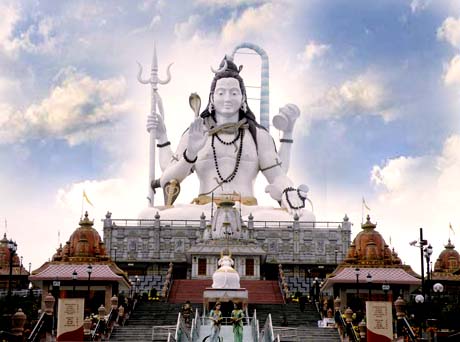Maha Shivratri, one of the most significant Hindu festivals, is celebrated every year in honour of Lord Shiva, the god of destruction and creation. This year, Maha Shivratri is scheduled to be observed February 18, and millions of devotees around the world will celebrate on this auspicious occasion.
Maha Shivratri, which translates to “the great night of Shiva,” is believed to be the night when Lord Shiva performed the Tandava, his cosmic dance of creation and destruction. According to Hindu mythology, this night holds immense spiritual significance, as it is believed that Lord Shiva’s blessings are more accessible to his devotees.
The festival is celebrated with great enthusiasm and devotion, with many people observing a fast and performing puja (worship) of Lord Shiva. Devotees offer flowers, fruits, and milk to Lord Shiva’s idols and chant mantras throughout the night.
Maha Shivratri is also an occasion to remember Lord Shiva’s teachings, emphasising the importance of self-control and detachment from worldly desires. In addition to puja and fasting, many people also participate in cultural and spiritual events, such as reading religious texts, reciting hymns, and performing charitable acts.
The festival is celebrated in different ways across India, with each region having its unique traditions and customs. In some places, people decorate their homes with lights and flowers, while in others, devotees take a dip in the sacred rivers.
As the sun sets on the day of Maha Shivratri, the atmosphere becomes charged with an aura of divinity, and the devotees feel a sense of awe and wonder as they celebrate the great night of Lord Shiva.
In conclusion, Maha Shivratri is a festival that brings together millions of devotees from all over the world to celebrate Lord Shiva’s greatness and seek his blessings. Whether through puja, fasting, or cultural events, the festival’s traditions and teachings inspire individuals to connect with their spirituality and lead a more meaningful life.
PNN







































